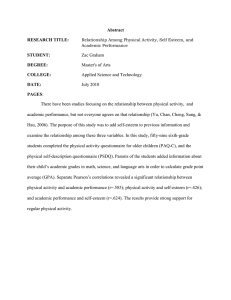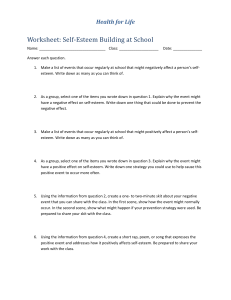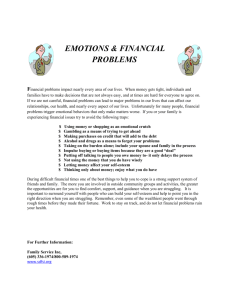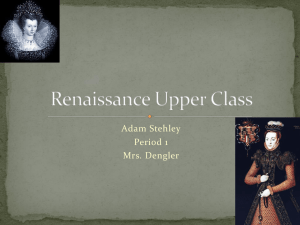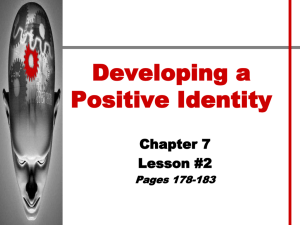The effect of Advertising Models’ Body Size on Consumers’ Perceptions... Hoori Rafieian, Ph.D. Student, Department of Marketing
advertisement
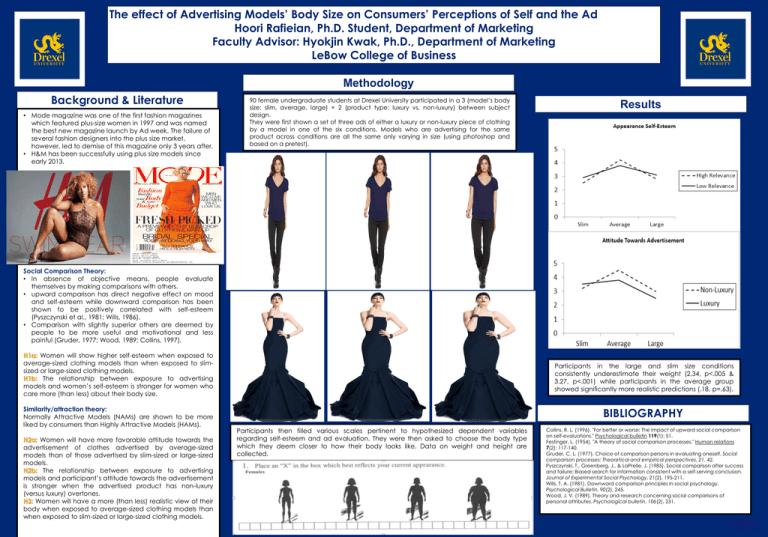
The effect of Advertising Models’ Body Size on Consumers’ Perceptions of Self and the Ad Hoori Rafieian, Ph.D. Student, Department of Marketing Faculty Advisor: Hyokjin Kwak, Ph.D., Department of Marketing LeBow College of Business Methodology Background & Literature • Mode magazine was one of the first fashion magazines which featured plus-size women in 1997 and was named the best new magazine launch by Ad week. The failure of several fashion designers into the plus size market, however, led to demise of this magazine only 3 years after. • H&M has been successfully using plus size models since early 2013. 90 female undergraduate students at Drexel University participated in a 3 (model’s body size: slim, average, large) × 2 (product type: luxury vs. non-luxury) between subject design. They were first shown a set of three ads of either a luxury or non-luxury piece of clothing by a model in one of the six conditions. Models who are advertising for the same product across conditions are all the same only varying in size (using photoshop and based on a pretest). Results Social Comparison Theory: • In absence of objective means, people evaluate themselves by making comparisons with others. • upward comparison has direct negative effect on mood and self-esteem while downward comparison has been shown to be positively correlated with self-esteem (Pyszczynski et al., 1981; Wills, 1986). • Comparison with slightly superior others are deemed by people to be more useful and motivational and less painful (Gruder, 1977; Wood, 1989; Collins, 1997). H1a: Women will show higher self-esteem when exposed to average-sized clothing models than when exposed to slimsized or large-sized clothing models. H1b: The relationship between exposure to advertising models and women’s self-esteem is stronger for women who care more (than less) about their body size. Similarity/attraction theory: Normally Attractive Models (NAMs) are shown to be more liked by consumers than Highly Attractive Models (HAMs). H2a: Women will have more favorable attitude towards the advertisement of clothes advertised by average-sized models than of those advertised by slim-sized or large-sized models. H2b: The relationship between exposure to advertising models and participant’s attitude towards the advertisement is stronger when the advertised product has non-luxury (versus luxury) overtones. H3: Women will have a more (than less) realistic view of their body when exposed to average-sized clothing models than when exposed to slim-sized or large-sized clothing models. Participants in the large and slim size conditions consistently underestimate their weight (2,34, p<.005 & 3.27, p<.001) while participants in the average group showed significantly more realistic predictions (.18, p=.63). BIBLIOGRAPHY Participants then filled various scales pertinent to hypothesized dependent variables regarding self-esteem and ad evaluation. They were then asked to choose the body type which they deem closer to how their body looks like. Data on weight and height are collected. Collins, R. L. (1996). "For better or worse: The impact of upward social comparison on self-evaluations." Psychological bulletin 119(1): 51. Festinger, L. (1954). "A theory of social comparison processes." Human relations 7(2): 117-140. Gruder, C. L. (1977). Choice of comparison persons in evaluating oneself. Social comparison processes: Theoretical and empirical perspectives, 21, 42. Pyszczynski, T., Greenberg, J., & LaPrelle, J. (1985). Social comparison after success and failure: Biased search for information consistent with a self-serving conclusion. Journal of Experimental Social Psychology, 21(2), 195-211. Wills, T. A. (1981). Downward comparison principles in social psychology. Psychological Bulletin, 90(2), 245. Wood, J. V. (1989). Theory and research concerning social comparisons of personal attributes. Psychological bulletin, 106(2), 231. printed by www.postersession.com
